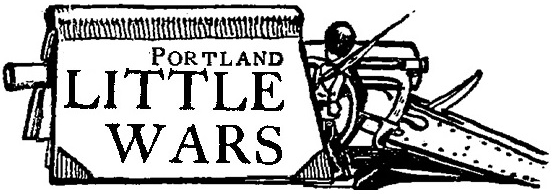The French armies in Italy were under the command of Gaston de Foix, nephew of Louis XII and brother-in-law of Ferdinand of Spain – a young nobleman of remarkable talents, whose short and brilliant career astonished Europe and acquired for him the title of the Thunderbolt of Italy. By a swift and determined movement he threw his army in Bologna, which the allies were then besieging. The forces of the Holy League [comprised of the Papal States, Venice, Spain, the Holy Roman Empire, and England] at once fled; and Gaston de Foix strongly guarded Bologna and then rapidly marched into Lombardy, where he ascertained that two cities had driven their away French garrisons or taken them captive. He defeated the Venetians near Isola della Scala before dawn by the light which the stars reflected from the snow. He took Brescia by storm and gave the city up to plunder and massacre. Bergamo escaped a similar fate by prompt submission and the payment of a ransom.
The King of France [Louis XII] now ordered his victorious commander to fight one decisive battle, and, if victorious, to march upon Rome, depose Pope Julius II, and dictate terms of peace. In executing this plan, Gaston de Foix marched toward Ravenna, driving the allied army before him. The great battle of Ravenna, which was fought April 11, 1512 [Easter Sunday as it so happened], has been described as "one of those tremendous days into which human folly and wickedness compress the whole devastation of a famine or a plague."*Defeating the Venetians "before dawn" sounds an awful lot like a surprise attack. A few other references seemed to place it as occurring in February 1512. So now I had a potential "winter" battle in Italy (which matched the Enfilade theme of 'winter wars') that was also part of the same campaign as Ravenna (spoiler: the French would win at Ravenna but de Foix would be slain there as well). Information on Isola della Scala was also so thin that I could pretty much build a scenario from scratch. I used the basic set-up from the Novara game I played last year (which involved the French caught off guard by Swiss mercenaries), but used slight variations of the force composition from the battle of Agnadello, and used the pre-dawn/dawn rules, the units-waking-up rules, and the tent/camp burning rules from the 'Beating Up Quarters' scenario in the Pikeman's Lament book.
(Above: the Venetian heavy cavalry asleep in the village)

(Above: the Venetian infantry asleep in their camp)
Almost all of the Venetian army (played by me) woke up on their first turn, and although I thought that might be too easy, we realized that the net effect was that the French (played by Gabe) got two moves before the Venetians started moving, which is about right for the element of surprise. One set-up error was the Venetian stradiots and some arquebusiers who served as "sentries" on the Venetian left (and thus do not start the game "asleep") were too close to the French at the start of the game, and either came under crossbow/bow fire or were attached by Gendarmes on the first turn, cause all three of those Venetian units to be destroyed by about the 2nd turn. In future re-plays these will be spaced better so they are not attacked immediately at the start of the game.
(Above: French gendarmes ride into the village.)
(Above: Venetian men-at-arms face advancing French Landsknechts.)
The rest of game was closely contested, as we put on our best "be ruthless and play to win" thinking caps, since that line of thought can be useful in detecting flaws in the scenario. The downside to this was the game went maybe slower than usual, and we would end up stoping the game at 11pm after 3 hours of play. At that point the French had set fire to one tent and one building, and had units in place to set fire to two more buildings. This would results in 4 points for the French and 6 for Venetians.
(Above: Venetian center.)
(Above: View of the game from the table edge. The French pike unit in the center is about to set fire to the small building.)
However, the Venetians still needed to destroy or rout another four French units to "stop the clock" so there possibly another 30+ minutes of game play left. The French right was in complete control of its side of the table, it center was not great but still had some functional units, and its left was roughed up but had largely pulled back to safety. The Venetian left and right were both in tatters but the center was very strong. Clearly the game would have been decided by the performances of the French right against the Venetian center. Since the Venetian center had already taken some initial casualties and the French right was largely fresh and unharmed, and included 3 Gendarme units with the "Terrible" rule (reroll missed hits) I'm tempted to give the French the advantage.
(Above: End of game. French right can be seen streaming towards the center at the upper left corner of the picture.)
See you at Ambuscade! on April 6!
*John Clifford, The Standard History of the World (1907), p.2560.






